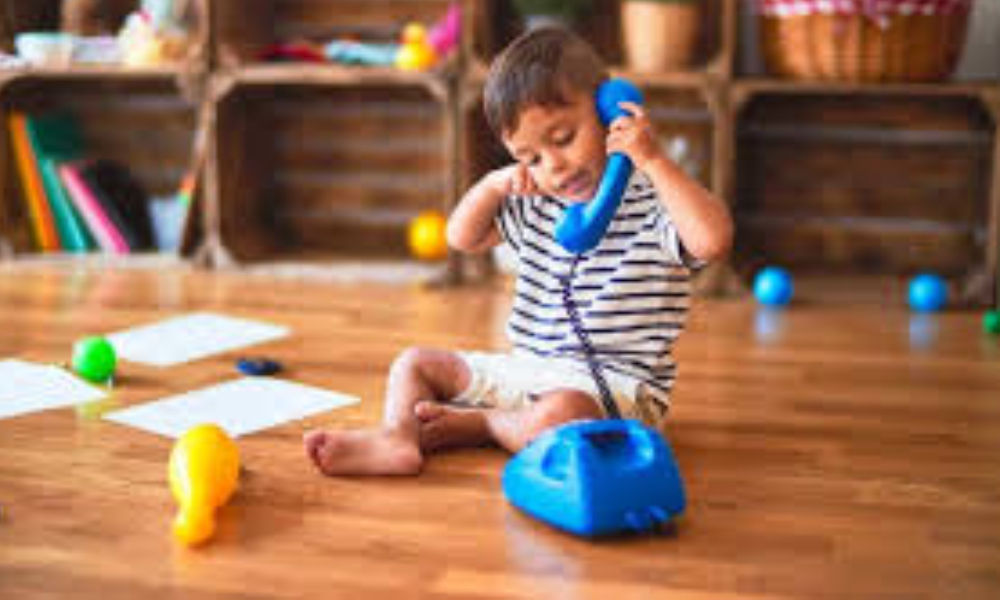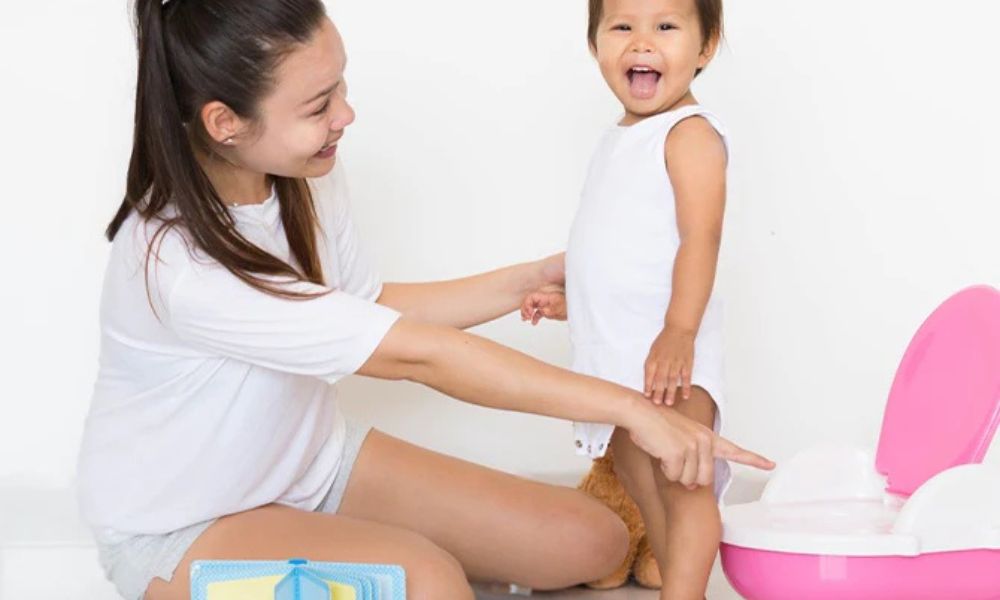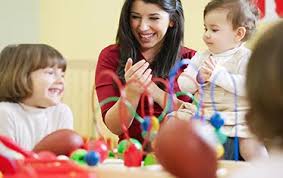How to Encourage Your Toddler to Talk: Fun Toddler Speech Activities That Really Work
Tanzeel Mehak
October 20, 2025

Speech is not just words, it’s how your toddler learns to express feelings and understand the world around them. When children start talking, they gain confidence, independence and stronger social learning skills.
But here’s the good news, helping your toddler to find their voice does not have to feel like a lesson. It can be fun, playful and part of your everyday routines. Through songs, games, stories and conversation, you can turn simple moments like snack time, bath time or bedtime into opportunities for learning language naturally.
In this article, you will know practical and enjoyable ways to encourage your toddler to talk and find easy activities that make language learning joyful for both of you.
Understanding Toddler Speech Development

Every child learns to talk but knowing what to expect can help you understand your toddler’s progress and support them with confidence. Speech and language skills grow step by step often through play, listening and imitation.
1. Key Speech Milestones (Ages 1 to 3 years)
Here’s a simple guide to what most toddlers do at different stages:
- 12 to 18 months:
Your child might say a few single words like mama, ball, or no. They understand more than they can say and do point or gesture to communicate.
- 18 to 24 months:
You’ll start hearing two word phrases like more milk or bye bye daddy. Their vocabulary may grow quickly and sometimes add new words every week.
- 24 to 36 months:
Around this age, toddlers begin using short sentences such as I want cookies or Daddy go work. They start asking questions and enjoy repeating words after hearing.
Tip: Remember, every child is unique. Some may talk early while others a bit later both can be perfectly normal.
The Power of Play in Toddler Speech Development

When you want to help your toddler, talking and playing is one of the most powerful activities. Children learn language best when they are having fun, feeling relaxed and connecting with someone.
1. Why Play Matters?
Play is not about keeping your toddler busy. It’s how they express themselves and learn to communicate. When you play together, your child is not just having fun they are:
- Listening to new words and sounds.
- Learning how conversations work.
- Practice for taking turns through interaction.
Simple games like building blocks, peek-a-boo or pretend play encourage toddlers to think, respond and use their voice. Even laughter and sound making are early forms of communication.
2. How Interaction Fuels Language?
Talking with your toddler is not a secret to speech development. Every back and forth exchange builds their understanding of how conversations flow.
Try to:
- Follow their lead: Talk about what your child is interested in. If they are playing with a ball.
- Use expression and excitement, your tone, smile and gestures make words more meaningful.
- Pause and wait: Give them a chance to respond, even if it’s just a sound or a gesture. That pause teaches turn taking an important part of communication.
Fun and Effective Toddler Speech Activities
It is the core responsibility of the parents and teachers to keep calm toward their children, the more you engage them with yourself, the more they will learn.
Do not ever pressurize your kids to speak clearly, they will learn at their own footsteps. But we have combined some of the effective speech therapy activities that will surely help your kid to learn to speak.
Talk Through Daily Routines
One of the simplest ways to boost your toddler’s speech is by talking throughout the day. Explain what you are doing as it happens that helps your child connect words with actions.
For example:
- Mommy is cutting an apple. Red apple!
- We are putting on your shoes. One shoe, two shoes!
- Encourage your toddler to name things around the house, like cup, chair or dog. You can make it a fun game: Can you find your teddy?
Tip: Keep your tone lovely and expressive. Toddlers love when you sound animated, your love keeps them engaged and curious about new words.
Read Aloud Every Day
Reading aloud is one of the best ways to help your toddler to grow language skills. Choose attractive books with bright pictures, textures or flaps they can lift.
Rhyming books or repetitive stories make learning words easier and more enjoyable. Try pausing during the story to let your toddler fill the missing word.
For example:
- You say: Brown bear, brown bear, what do you?
- Your child says: …see!
- You can also ask questions like, where’s the cat or what is the color of the balloon?
Sing Songs and Nursery Rhymes
- Music and rhythm help toddlers to remember words and sounds. Singing together makes speech practice fun and natural.
- Classic songs like twinkle twinkle little star are great because they repeat familiar phrases and encourage movement.
- Add gestures or actions to make it even more engaging like climb fingers for the spider, wave arms for stars or make animal sounds for each verse.
- Singing connects rhythm, sound and movement to all key parts of early speech learning.
Use Pretend Play
Pretend play opens the world of imagination and conversation. You can act simple scenes together like:
- Playing tea parties like would you like more tea?
- Grocery shopping like what should we buy today?
- Visiting the doctor like where does it hurt?
Support your toddlers to speak and make decisions through these games. When they play roles, they also learn to use words in creative and meaningful ways.
Pretend play helps your toddlers to build not just vocabulary but also confidence in expressing ideas and emotions.
Play Naming and Guessing Games
Games like what is this and guess games are great for introducing new words and for practicing observation skills.
- For younger toddlers: hold up toys, foods or pictures and ask what is this?
- For older toddlers: try I spy something red or I spy something we eat.
Make it a turn taking game where your toddler gets to ask you next. This teaches how conversations work and keeps speaking playful.
Encourage Choices
Asking your toddler for simple choices is a great way to invite them to speak. Instead of yes or no questions offer two clear options:
- Do you want milk or juice?
- Do you want to wear the red shirt or the blue shirt?
This helps toddlers to practice using two word responses: red shirt or want milk also teaching decision making.
Use Simple Repetition and Expansion
Repetition helps your toddlers to remember words and expansion helps them to form longer sentences.
When your toddler says a word, repeat it and add more detail:
- Toddle say: Doggy
- Parents: Yes, the brown doggy is running fast.
This shows them how to say words that they already know without pressure or correction. It turns their words into full and meaningful sentences over time.
When Toddler Speech Is Delayed Stay Positive
If you feel delay in your toddler speach while others talk earlier, don’t worry, that is normal but if you feel uncomfortable go to a pathologist for better ideas.
Stay calm:
Every child grows in their own footsteps. Some toddlers talk later than others, you don’t need to worry it’s normal.
Watch and listen:
If your toddlers understand what you say, follow directions and try to talk in other ways like pointing towards someone or gestures then progress is happening even if words are slow to come.
Know when to ask for help:
Go to your pathologist in any query or if your toddler is not saying any word in 18 months or not talk two words together at the age of 2 years.
Use helpful resources:
Early support such as speech therapy or early growth programs can give your toddler a big boost and guide you with simple ways that help at home.
Keep it positive:
Celebrate every small sound or new word of your toddler. Your encouragement and patience will make learning to talk feel safe, happy and fun.
Speech delay is normal sometimes but if it’s getting too late, concern to a doctor.
Conclusion
Helping your toddler to talk with patience, play and encourage them. Every time you sing, read or chat with your toddler that means you are helping them to build the confidence for communication.
Toddlers learn best when they feel loved and supported by parents. Celebrate their efforts, keep interactions with your toddlers and enjoy the small moments because each new word is a big step.
Every word your toddler learns begins with communication so start talking and keep it playful to listen to their voice grow stronger every day.



